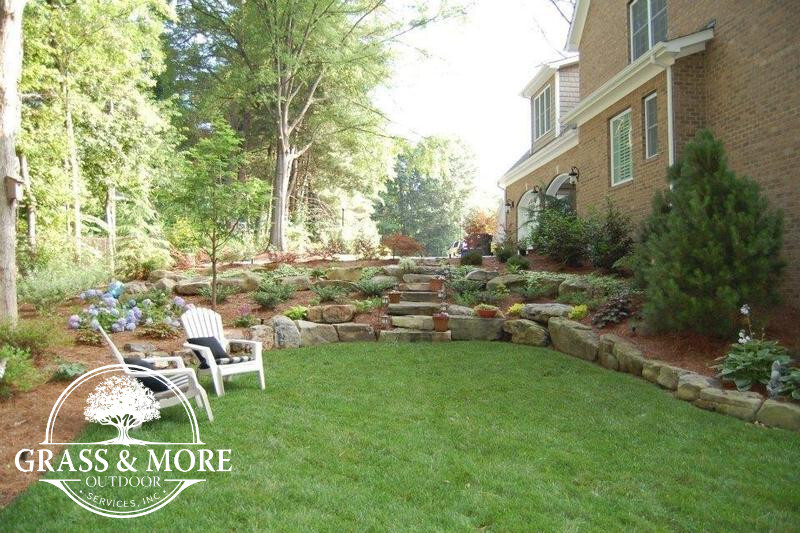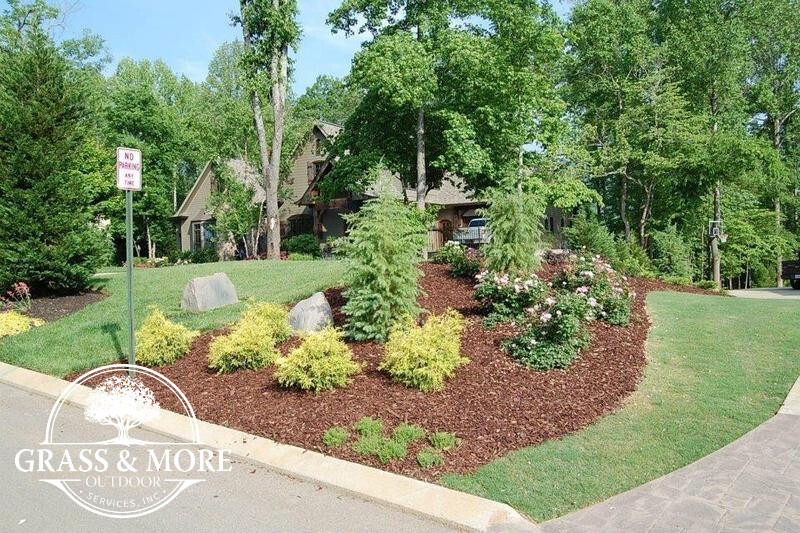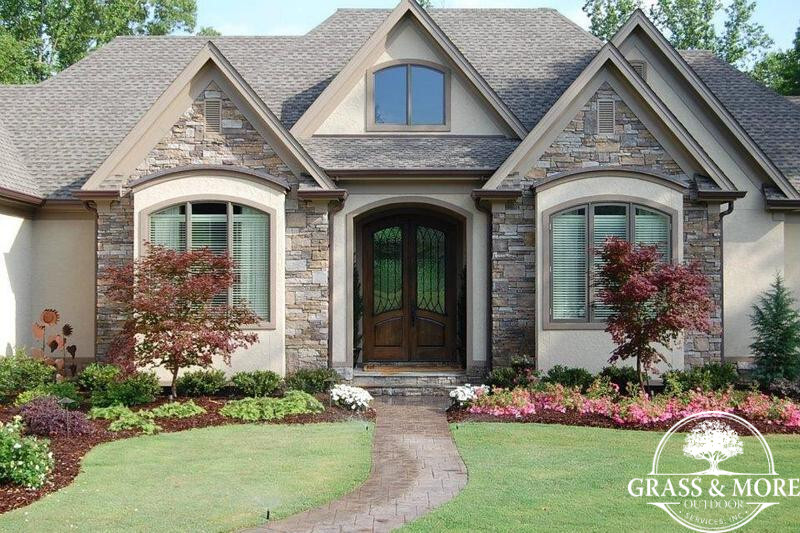
Landscaping for the summer in our area (Southern Tennessee) can be both beautiful and practical, taking into account the region's climate and vegetation. Here are some summer landscaping ideas to enhance your outdoor spaces:
Native Plants: Opt for native plants that are well-suited to the Tennessee climate. They will require less maintenance, be more resistant to pests, and conserve water better. Some examples of native plants for the region include black-eyed susans, coneflowers, and butterfly weed.
Drought-Resistant Landscaping: Since summers in the south can be hot and dry, consider incorporating drought-resistant landscaping features like rock gardens, succulent arrangements, and ornamental grasses. These plants can withstand periods of limited water availability.
Shade Gardens: Create shaded areas using pergolas, arbors, or tall trees to provide relief from the intense summer sun. Shade gardens can be filled with ferns, hostas, and other shade-loving plants.
Water Features: Install a water feature like a small pond, fountain, or birdbath. Water elements not only add a soothing ambiance but also attract birds and other wildlife to your garden.
Outdoor Seating Areas: Design comfortable outdoor seating areas using patio furniture, outdoor rugs, and cushions. Consider adding shade umbrellas or a gazebo to protect from the sun.
Butterfly and Pollinator Gardens: Attract pollinators like butterflies, bees, and hummingbirds by planting a variety of flowering plants. Include nectar-rich flowers such as bee balm, zinnias, and milkweed to support the local ecosystem.
Raised Garden Beds: Raised beds can help improve drainage and prevent soil erosion. They are ideal for growing vegetables and herbs during the summer months.
Summer-Flowering Trees: Incorporate trees that bloom in summer, such as crepe myrtles or southern magnolias, to add color and beauty to your landscape.
Outdoor Lighting: Install outdoor lighting to extend your garden's usability into the evenings. Use solar-powered lights or energy-efficient LED fixtures to save on energy costs.
Mulching: Apply a layer of organic mulch around plants and trees to retain moisture, suppress weeds, and regulate soil temperature during hot weather.
Remember to consider your specific location's sunlight exposure, soil type, and other unique factors when planning your summer landscaping. By choosing the right plants and design elements, you can create a vibrant and inviting outdoor space to enjoy during the summer months.
13 Tips and Tricks For Summer Time Landscaping
-
Watering Schedule: During hot summer months, it's crucial to water your plants appropriately. Water deeply but less frequently to encourage deep root growth. Early morning or late evening watering is best to minimize water loss due to evaporation.
-
Mulching: Apply a layer of mulch around your plants to retain moisture, suppress weeds, and regulate soil temperature. This helps keep the soil cooler during scorching summer days and conserves water.
-
Proper Plant Selection: Choose plants that are well-adapted to the Tennessee climate. Opt for drought-resistant and heat-tolerant varieties to reduce water consumption and ensure your landscape thrives in the summer heat.
-
Grouping Plants: Group plants with similar water needs together. This allows for more efficient watering, as you can target specific areas without overwatering others.
-
Soil Conditioning: Before summer arrives, amend the soil with organic matter to improve its water-holding capacity and nutrient content. Well-nourished soil helps plants withstand stress during hot weather.
-
Pruning and Deadheading: Regularly prune your plants to remove dead or diseased growth and encourage new blooms. Deadheading spent flowers also promotes continuous flowering through the summer.
-
Shade Solutions: If you don't have natural shade from trees, consider adding shade structures like pergolas or shade sails to protect sensitive plants and create comfortable outdoor living spaces.
-
Raised Beds and Containers: If you have limited garden space or poor soil quality, consider using raised beds or containers for your plants. They allow better control over soil conditions and drainage.
-
Composting: Start a compost pile or bin to recycle yard waste and kitchen scraps into nutrient-rich compost. Adding compost to your soil enriches it and helps retain moisture.
-
Pest Control: Keep an eye out for pests and address any infestations promptly. Introduce beneficial insects like ladybugs and praying mantises to naturally control harmful pests.
-
Fertilization: Apply slow-release fertilizers to provide a steady supply of nutrients to your plants throughout the summer. Avoid over-fertilization, as it can lead to excessive growth and stress the plants.
-
Lawn Care: Raise the cutting height of your lawnmower during the summer to help your grass retain moisture and develop deeper roots. Leave the grass clippings on the lawn to provide extra nutrients.
-
Rain Barrels: Consider installing rain barrels to collect rainwater from gutters. This harvested water can be used to irrigate your landscape during dry spells, reducing your dependence on municipal water.
We Specialize in Lawn Care and Landscaping in Chattanooga and Dalton
At Grass & More Outdoor Services, we pride ourselves on delivering quality services that will exceed your expectations. We understand that landscaping is a significant investment, so we’ll go the extra mile to provide the reliable work you can count on. We go out of our way to keep our prices affordable so that customers like you get top value for your money; and with us, appointments are easy and flexible.
Invest in your property with landscaping that will stand the heat of the summer . Call now for more information or to schedule an estimate.



